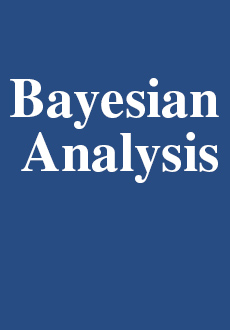Abstract
Consider the situation where an analyst has a Bayesian statistical model that performs well for continuous data. However, suppose the observed dataset consists of multiple response-types (e.g., continuous, count-valued, Bernoulli trials, etc.), which are distributed from more than one class of distributions. We refer to these types of data as “multiple response-type” datasets. The goal of this article is to introduce a reasonable easy-to-implement all-purpose method that “converts” a Bayesian statistical model for continuous responses (call this the preferred model) into a Bayesian model for multiple response-type datasets. To do this, we consider a transformation of the multiple response-type data, such that the transformed data can be reasonably modeled using the preferred model. What is unique with our strategy is that we treat the transformations as unknown and use a Bayesian approach to model this uncertainty. The implementation of our Bayesian approach to unknown transformations is straightforward, and involves two steps. The first step produces posterior replicates of the transformed multiple response-type data from a latent conjugate multivariate (LCM) model. The second step involves generating values from the posterior distribution implied by the preferred model. We demonstrate the flexibility of our model through an application to Bayesian additive regression trees (BART) and a spatio-temporal mixed effects (SME) model. We provide a thorough joint multiple response-type spatio-temporal analysis of coronavirus disease 2019 (COVID-19) cases, the adjusted closing price of the Dow Jones Industrial (DJI), and Google Trends data.
Citation
Jonathan R. Bradley. "Joint Bayesian Analysis of Multiple Response-Types Using the Hierarchical Generalized Transformation Model." Bayesian Anal. 17 (1) 127 - 164, March 2022. https://doi.org/10.1214/20-BA1246
Information





